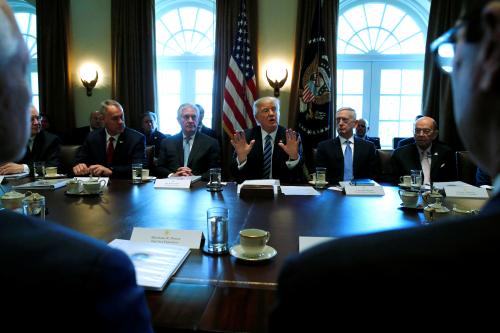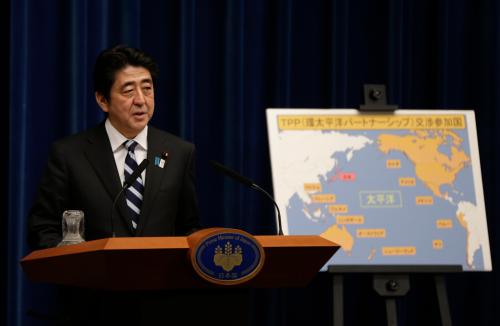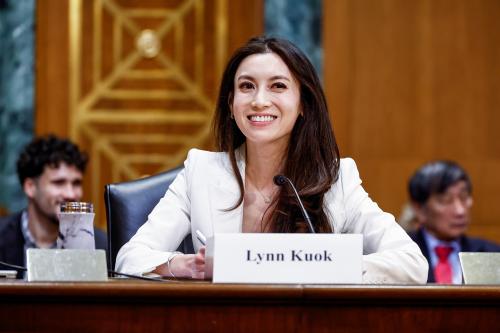MIreya Solis: Cracks in Trump’s Trade Orthodoxy?
In stating that he does not oppose the Trans-Pacific Partnership (TPP), Rex Tillerson took a sharply different position from the president-elect during his confirmation hearing yesterday before the Senate Foreign Relations Committee. Sure enough, Mr. Tillerson softened his statement by giving a nod to the concern that liberalization does not benefit all U.S. interests—but breaking from Trump’s trade orthodoxy is noteworthy. Still, not opposing TPP is a far cry from actually championing it if confirmed. Asian capitals would surely pay attention to the arrival of a secretary of state who grasps the geopolitics of multilateral rule-making.
The plot thickens: How will the tug of war between Trump’s trade circle (with a strong economic nationalist bent) and the broader economic-diplomatic team (with more favorable views towards internationalism) play out? Can geopolitics—avoiding a vacuum in East Asia, putting China on the defensive—eventually lead the Trump administration to “reinvent” TPP? Or will the sheer weight of Trump’s trade ideology rule out any correction course?
Richard Bush: TILLERSON ON ALLIANCES
In his confirmation testimony on January 11 before the Senate Foreign Relations Committee, Rex Tillerson confirmed a shift in the view of the incoming Trump administration regarding U.S. alliances in Asia. Yet he did not completely remove the doubts that Candidate Trump created in the minds of our Asian allies during the campaign.
The theme of Tillerson’s testimony was that the Trump administration would renew and assert American leadership in the world. Our “durable alliances,” he said, were a key advantage in carrying out this effort. This reaffirmation of alliances will be welcome news in Tokyo, Seoul, and Canberra. It resonates with statements made the day before by National Security Adviser-designate Michael Flynn.
Tillerson also laid down a marker for our allies that echoes Candidate Trump’s theme that our allies were not bearing a sufficient burden in preserving peace and security. Tillerson said:
“We must hold our allies accountable to commitments they make. We cannot look the other way at allies who do not meet their obligations; this is an injustice not only to us, but to longstanding friends who honor their promises and bolster our own national security.”
The reference to “commitments they make” probably refers to the failure of some NATO allies to meet the guideline (not binding obligation) that they spend at least 2 percent of their GDP on defense. If that is the specific thing on Team Trump’s mind, that may relieve anxieties in East Asia—after all, there are no such numerical guidelines that Japan, Korea, or Australia must meet.
Yet concerns remain. The absence of a defense-spending guideline does not mean that the new administration won’t lean on Tokyo and Seoul to spend more. If it does, using the percentage-of-GDP metric is not really a good metric for evaluating burden-sharing, because it says nothing about the capabilities that are being acquired and whether they are commensurate with the threat faced. Moreover, not everything important about alliances can be quantified. The allocation of alliance burdens depends on a shared definition of missions, a coordination of effort, and a confidence on the part of each ally that the other will have its back.
The Brookings Institution is committed to quality, independence, and impact.
We are supported by a diverse array of funders. In line with our values and policies, each Brookings publication represents the sole views of its author(s).








Commentary
Tillerson offers reassurance on Asia—But will it stand?
January 12, 2017